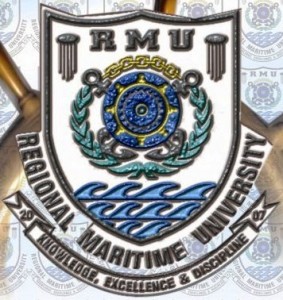Regional Maritime University introduces Japanese, Chinese languages
 Management of the Regional Maritime University (RMU) has introduced functional literacy classes in the Japanese language effective 2018/2019 academic year.
Management of the Regional Maritime University (RMU) has introduced functional literacy classes in the Japanese language effective 2018/2019 academic year.
The idea is to equip the University’s Sea-going students with functional Japanese language to enable them work on board Japanese vessels.
Professor Elvis Nyarko, the Vice Chancellor of RMU, speaking at the sixteenth Matriculation of the University, said for the non-sea-going students, it would also enable them take up job opportunities in Japanese owned companies.
For the 2018/19 Academic Year, the RMU admitted 750 applicants from both member and non-member countries out of which 525, representing 70 per cent were accepted and registered for various programmes.
They are made up of 442 males representing 84 per cent and 84 females making up the remaining 16 per cent.
“I will like to encourage as many of you as possible to take advantage of this opportunity to learn a second language,” he added.
The Vice-Chancellor said plans were far advanced to introduce Chinese language as well, indicating that beginning from the 2019/2020 academic year, these courses would form part of University-wide courses.
He said all students enrolled into the University would learn these languages to at least the intermediate level.
He said it was important to note that admission of females into sea-going programmes of the Nautical Science and Maritime Engineering has increased from five about two year ago to 20 this academic year constituting about 25 per cent of the total females admitted.
“This means that the University’s drive to encourage more females to take up sea-going programmes is achieving good results,” he added.
He said, however, this was still low compared to the huge global demand for seafarers as well as numerous job opportunities in the maritime sector.
Prof Nyarko appealed to government to set up a social scholarship scheme to support more women to encourage them to take up maritime education and training programmes in the University.
He said the University would continue to work round the clock to ensure the security of lives and properties.
He said, however, students were expected to be security conscious throughout their stay in the University, adding that “towards this end, both fresh and continuing students are required to always have your identification cards in your possession at all times, when within the premises of the University.”
He said it was the only symbol of identity to avoid any act of embarrassment by the security personnel at the security post.
The Vice-Chancellor called on students to exhibit high sense of discipline while in the University, adding that the institution would not award its certificate to students, who were found wanting in character and in learning.
Source: GNA
